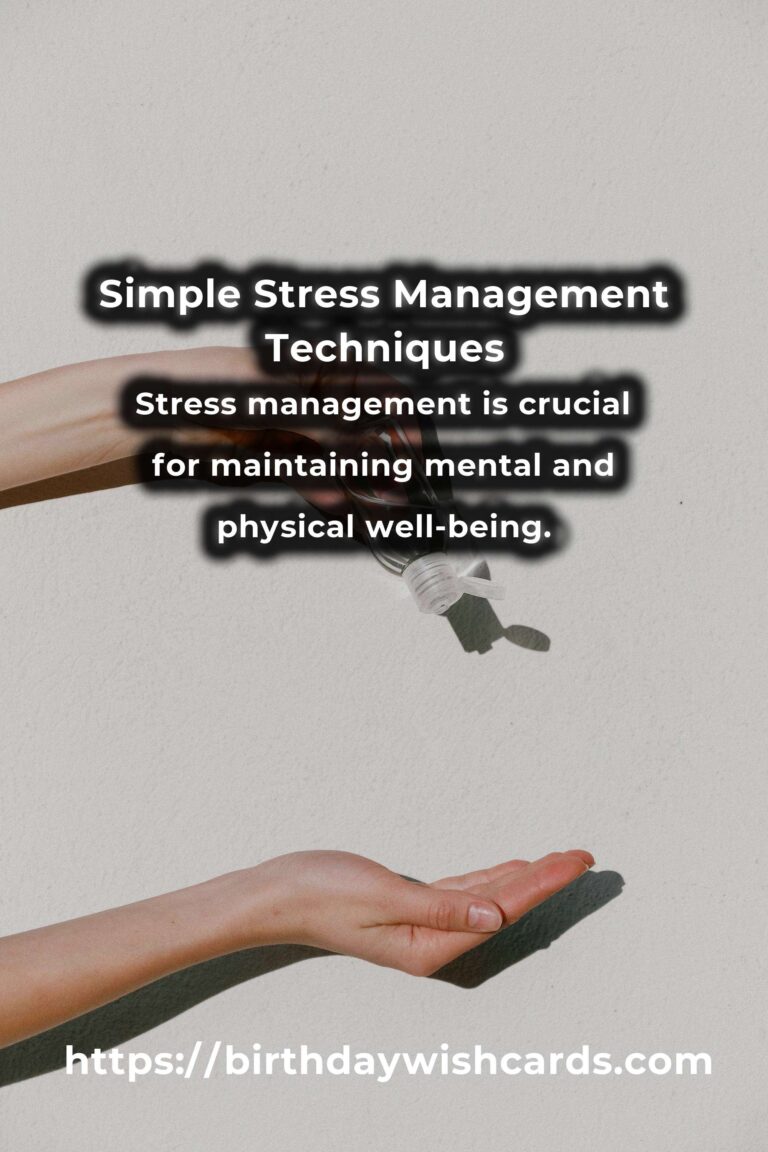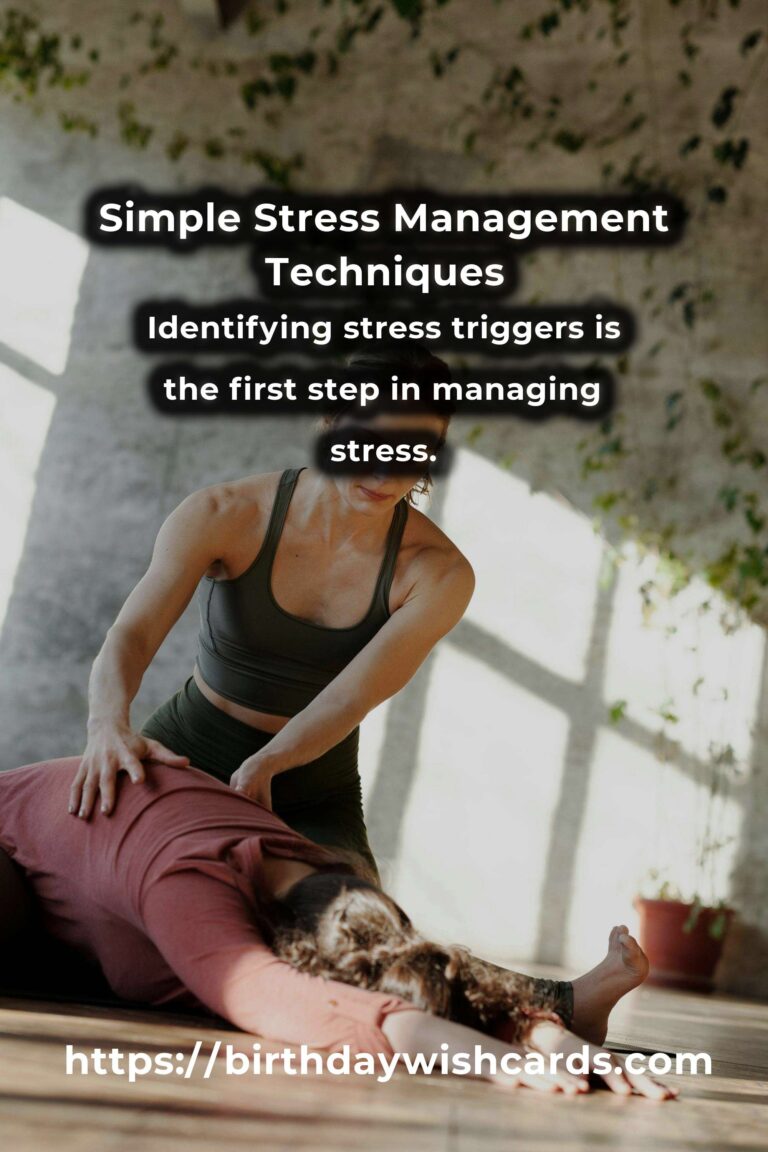
In today’s fast-paced world, stress has become a common companion in our daily lives. Managing stress effectively is crucial for maintaining mental and physical well-being. This guide will explore simple stress management techniques that can be easily incorporated into your daily routine.
Understanding Stress
Stress is the body’s natural response to challenges or demands. It can be caused by various factors, including work pressure, relationships, financial issues, or health concerns. While a certain level of stress can be beneficial by keeping us alert and motivated, chronic stress can lead to serious health problems.
Identify Stress Triggers
The first step in managing stress is to identify what triggers it. Keeping a stress journal can help you recognize patterns and pinpoint specific stressors. Once you have identified these triggers, you can work on strategies to minimize their impact.
Adopt a Healthy Lifestyle
Maintaining a healthy lifestyle is essential for stress management. Regular physical activity, a balanced diet, and adequate sleep can significantly reduce stress levels. Exercise releases endorphins, which are natural mood lifters, while a nutritious diet provides the necessary nutrients to combat stress.
Practice Mindfulness and Relaxation Techniques
Mindfulness involves staying present and fully engaging with the current moment. Techniques such as meditation, deep breathing, and yoga can help calm the mind and reduce stress. These practices promote relaxation and improve emotional resilience.
Time Management
Effective time management can alleviate stress by helping you prioritize tasks and avoid procrastination. Break tasks into smaller, manageable steps, and set realistic goals. Use tools like calendars and to-do lists to stay organized and focused.
Build a Support System
Having a strong support system can help you cope with stress. Surround yourself with positive and understanding people who can offer encouragement and advice. Don’t hesitate to reach out to friends, family, or professional counselors when needed.
Set Boundaries
It’s important to set boundaries to protect your mental and emotional well-being. Learn to say no when necessary and avoid overcommitting yourself. Establish clear limits on work hours and personal time to ensure a healthy work-life balance.
Engage in Hobbies and Interests
Engaging in activities you enjoy can be a great way to relieve stress. Whether it’s reading, painting, gardening, or playing a musical instrument, hobbies provide an outlet for creativity and relaxation.
Conclusion
Stress management is a vital skill that can greatly enhance your quality of life. By understanding your stressors and implementing these simple techniques, you can regain control and lead a more balanced and fulfilling life.
Stress management is crucial for maintaining mental and physical well-being. Identifying stress triggers is the first step in managing stress. A healthy lifestyle, including regular exercise and a balanced diet, can significantly reduce stress levels. Mindfulness practices such as meditation and yoga promote relaxation and improve emotional resilience. Effective time management can help prioritize tasks and reduce stress. Building a strong support system is essential for coping with stress. Setting boundaries is important for protecting your mental and emotional well-being. Engaging in hobbies provides an outlet for creativity and relaxation.
#StressManagement #MentalHealth #WellBeing #Mindfulness #HealthyLifestyle













